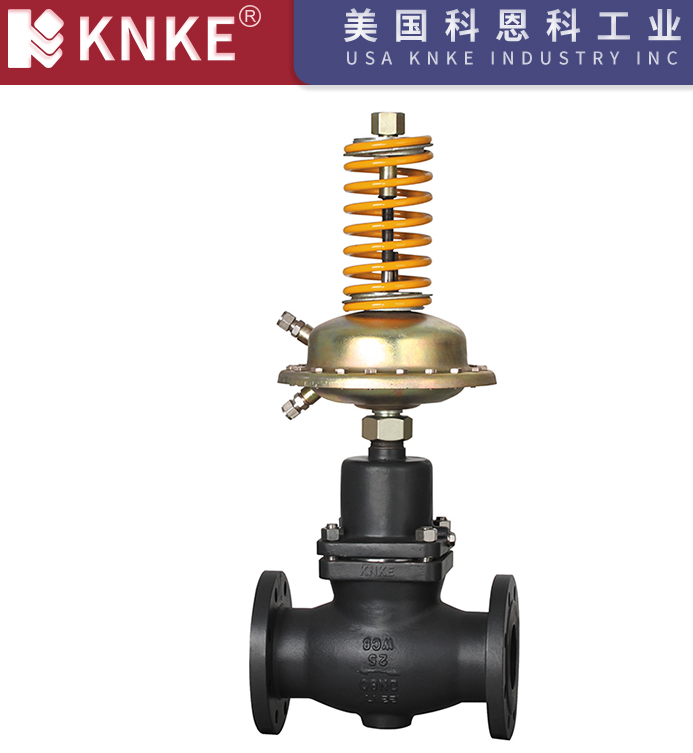The Role of Control Valves in Industrial Systems
Control valves are essential components in industrial automation and fluid control systems. They are widely used across industries such as petroleum, chemical, power, water supply, and gas distribution. Their primary function is to regulate parameters such as flow, pressure, or temperature, ensuring optimal performance of the system. In this article, we will explore the role of control valves in various industries and their working principles.

1. Flow Control
One of the most fundamental roles of a control valve is to regulate the flow of fluid. By precisely adjusting the valve’s opening, control valves can manage the flow rate of fluids in pipelines. This is crucial in applications requiring accurate flow control, such as in chemical processing or heating systems. Control valves allow real-time adjustment of flow in response to changing system loads, ensuring stable operation.
2. Pressure Regulation
In many industrial systems, controlling pressure is vital to ensure safe and efficient operation. Control valves adjust the valve opening to modify the pressure within a pipeline. They maintain the system pressure within set parameters, preventing overpressure or underpressure conditions that could damage equipment. For instance, in steam boiler systems, control valves regulate steam pressure, ensuring safe and efficient operation.
3. Temperature Control
Temperature regulation is another critical function of control valves in industrial systems. In processes such as chemical reactions or heat exchange, controlling temperature is essential for maintaining stability and enhancing production efficiency. Control valves, in conjunction with temperature sensors, adjust the flow of heating or cooling fluids to maintain the desired temperature, ensuring optimal conditions for processes like heat exchangers and reactors.
4. Fluid Property Control
Control valves also play a crucial role in regulating fluid properties, such as flow velocity and turbulence. In specialized applications, such as the handling of liquid metals or gas mixtures, precise control of fluid dynamics is necessary. By adjusting the valve opening, control valves help optimize the flow characteristics, ensuring system stability and safety in complex processes.
5. Automation and Smart Control
Modern control valves are integrated into automated control systems, making them more intelligent and efficient. By connecting with sensors, programmable logic controllers (PLCs), and other devices, control valves provide real-time adjustments to system parameters. This automation reduces human error, improves operational reliability, and enhances safety. The ability to automatically adjust based on environmental changes allows systems to run more efficiently and safely.
6. Improving System Efficiency and Energy Saving
Effective use of control valves significantly enhances system efficiency and reduces energy consumption. In heat exchange systems, for example, control valves optimize fluid flow, reducing energy waste and improving overall thermal efficiency. In pump systems, they adjust flow to avoid unnecessary pump power consumption, contributing to energy savings and cost reduction.
7. Preventing Overload Conditions
Control valves are crucial in preventing systems from operating under overload conditions. In industries such as water treatment and oil and gas transportation, control valves limit flow and pressure, preventing accidents like pipe bursts or leaks caused by excessive pressure or flow. This safety feature ensures the protection of both the system and personnel.
8. Applications in Various Industries
- Petrochemical Industry: Control valves are used to regulate pressure and temperature in reactors, distillation columns, and other equipment, ensuring stable chemical reactions and production processes.
- HVAC Systems: In heating, ventilation, and air conditioning (HVAC) systems, control valves manage water flow and temperature to maintain comfortable indoor environments.
- Food and Beverage Industry: Control valves regulate the flow of liquid ingredients, ensuring consistent product quality and efficient production processes.
Control valves are indispensable components in industrial automation and fluid control systems. By precisely managing the flow, pressure, and temperature of fluids, they enhance system performance, safety, and energy efficiency. As technology continues to advance, control valves will remain a vital tool across various industries, helping to optimize production processes and ensure the safe and efficient operation of systems.
